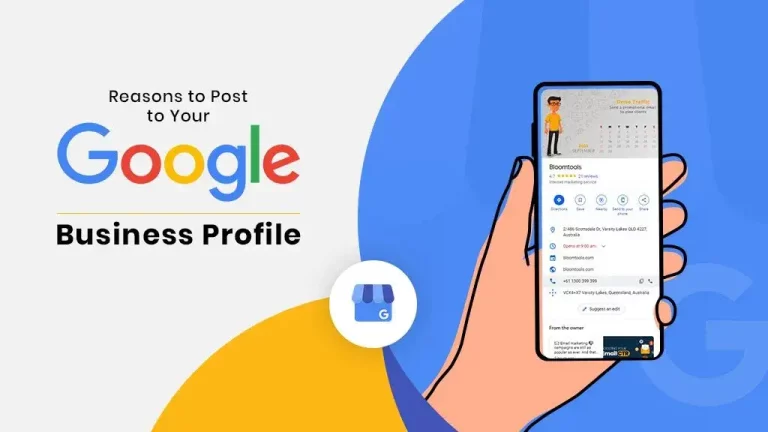The Impact of Video Marketing on Consumer Behaviour

In today’s digital landscape, video marketing has emerged as a dominant force, profoundly influencing consumer behaviour and reshaping how brands engage with their audiences. The rise of platforms like YouTube, Instagram, and TikTok, along with the increased accessibility of video production tools, has made video content more ubiquitous than ever before. This article explores the impact of video marketing on consumer behaviour, its effectiveness, psychological underpinnings, and strategies that make it a powerful tool for brands.
The Rise of Video Marketing
Video marketing’s meteoric rise is no accident. With the proliferation of smartphones and high-speed internet, consumers are now more inclined to consume content in video form than through traditional text or images. According to a report by Cisco, video content is expected to make up more than 82% of all consumer internet traffic by 2024. This shift in content consumption habits has compelled brands to prioritise video in their marketing strategies.
Several factors contribute to the effectiveness of video marketing. Firstly, videos are inherently engaging. They combine visuals, sound, and motion, which can capture attention more effectively than static images or text. Secondly, videos can convey complex information in a concise and digestible format, making them ideal for communicating brand messages, product features, or educational content. Finally, videos have a higher shareability factor, with users more likely to share video content across social media platforms than other types of content. This is particularly relevant in the context of social media advertising, where video is a critical tool.
Psychological Impact of Video on Consumers
Understanding the psychological impact of video on consumers is crucial to grasping its influence on behaviour. Videos are processed by the brain more quickly than text, and they stimulate both the auditory and visual senses, creating a more immersive experience. This sensory engagement is a key factor in why video content can evoke stronger emotional responses than other forms of media.
Emotion plays a significant role in consumer decision-making. When consumers watch a video, they are more likely to connect emotionally with the content, which can influence their attitudes towards a brand or product. For instance, a well-crafted video that tells a compelling story can create a sense of empathy or excitement, which can lead to increased brand loyalty or a higher likelihood of making a purchase. This is particularly important when considering the importance of consistency across digital platforms, as consistent branding in videos strengthens the emotional connection with the audience.
Moreover, videos can create a sense of trust. Seeing a product in action or hearing a testimonial from a satisfied customer can reassure potential buyers and reduce the perceived risk of making a purchase. This is particularly important in e-commerce, where consumers cannot physically interact with a product before buying it. Videos bridge this gap by providing a more tangible experience, helping consumers feel more confident in their purchasing decisions. Trust and credibility are also enhanced by the impact of social proof on consumer behaviour, which can be effectively conveyed through video testimonials and reviews.
The Role of Storytelling in Video Marketing
Storytelling is a powerful tool in video marketing that can significantly influence consumer behaviour. Unlike traditional advertising, which often focuses on promoting a product’s features and benefits, storytelling in video marketing aims to connect with consumers on a deeper, more emotional level.
When a brand tells a story through video, it creates a narrative that resonates with the viewer’s values, aspirations, or experiences. This connection makes the brand more relatable and memorable, increasing the likelihood of consumer engagement and loyalty. For example, many successful video campaigns focus on human interest stories, social causes, or inspirational messages that align with the brand’s ethos. These stories not only promote the brand but also foster a sense of community and shared values among consumers. This approach is similar to the strategies discussed in crafting a brand identity, where consistency and emotional resonance are key.
The effectiveness of storytelling in video marketing is further enhanced by the medium’s ability to combine visuals, sound, and music. A well-crafted video can evoke emotions such as joy, sadness, or excitement, making the story more impactful and memorable. This emotional connection can drive consumers to take action, whether it’s sharing the video, signing up for a newsletter, or making a purchase.
Video Marketing and Consumer Engagement
One of the most significant impacts of video marketing on consumer behaviour is its ability to drive engagement. Engaged consumers are more likely to interact with a brand, share its content, and become loyal customers. Video content is particularly effective in fostering engagement due to its dynamic and interactive nature.
For instance, social media platforms like Facebook and Instagram have integrated features such as live video, stories, and reels, which encourage real-time interaction between brands and consumers. These features allow brands to create more personalised and authentic content, which can lead to higher levels of engagement. Consumers are more likely to comment, like, and share video content, which not only increases brand visibility but also fosters a sense of community around the brand. This aligns with trends in digital marketing for 2024, where engagement through personalised content is key.
Interactive video content, such as quizzes, polls, and shoppable videos, further enhances consumer engagement by allowing viewers to participate in the experience actively. This interactivity not only keeps viewers engaged for longer but also provides brands with valuable insights into consumer preferences and behaviours. These insights can be further refined using data analytics, enabling smarter business decisions and more effective marketing strategies.
Moreover, video content is more likely to go viral compared to other types of content. The shareable nature of videos means that a compelling video can quickly spread across social media, reaching a broader audience and amplifying the brand’s message. This viral potential makes video marketing a powerful tool for increasing brand awareness and driving consumer action.
The Influence of Video Marketing on Purchase Decisions
Video marketing plays a critical role in influencing consumer purchase decisions. Several studies have shown that consumers are more likely to purchase a product after watching a video about it. This influence is particularly strong in e-commerce, where videos can help bridge the gap between online and in-store shopping experiences.
Product demonstration videos are one of the most effective types of video content for driving purchases. These videos show the product in action, highlighting its features, benefits, and potential uses. By providing a visual and auditory representation of the product, these videos help consumers understand how the product can meet their needs, making them more likely to buy it.
Testimonial videos and user-generated content also play a significant role in influencing purchase decisions. Seeing real customers share their positive experiences with a product can build trust and credibility, reassuring potential buyers that the product is worth their investment. This is particularly important in markets where consumers rely heavily on reviews and recommendations from others before making a purchase.
Moreover, video content can reduce the perceived risk associated with buying a new product. For example, unboxing videos, where a product is unpacked and reviewed, provide consumers with a more detailed look at the product before they buy it. This transparency helps consumers feel more confident in their purchase decisions, reducing the likelihood of returns or dissatisfaction. This aligns with the concept of improving user experience (UX), which is crucial in increasing website conversions and customer satisfaction.
The Role of Video Marketing in Brand Awareness and Loyalty
Video marketing is a powerful tool for building brand awareness and loyalty. A well-executed video campaign can introduce a brand to a new audience, reinforce brand identity, and create a lasting impression that keeps consumers coming back.
Brand awareness is often the first step in the customer journey. Video content is particularly effective in capturing attention and making a memorable impact. For example, a creative and visually appealing video ad can quickly convey a brand’s message, values, and personality, leaving a lasting impression on viewers. This initial awareness can then lead to further engagement, as consumers seek out more information about the brand or its products.
Consistency in video content also plays a crucial role in reinforcing brand identity. By consistently producing high-quality videos that align with the brand’s values and messaging, brands can strengthen their identity and build trust with their audience. This consistency helps create a sense of familiarity and reliability, which is essential for building long-term customer loyalty.
Loyalty is further enhanced by the emotional connections that video content can create. As mentioned earlier, storytelling and emotional appeal in videos can foster a deeper connection between the brand and the consumer. When consumers feel an emotional connection to a brand, they are more likely to remain loyal and advocate for the brand to others.
The Impact of Video Marketing on Consumer Trust
Trust is a critical factor in consumer behaviour, and video marketing plays a significant role in building and maintaining that trust. Consumers are more likely to trust a brand that is transparent, authentic, and consistent in its messaging, all of which can be effectively conveyed through video content.
Transparency is key to building trust, and videos offer a unique way to provide that transparency. For example, behind-the-scenes videos that show how products are made or how a company operates can give consumers a glimpse into the brand’s values and practices. This transparency helps build credibility and trust, as consumers feel they are getting an honest look at the brand.
Authenticity is another crucial element in building
trust, and video content allows brands to showcase their authentic selves. Whether it’s through live videos, vlogs, or customer testimonials, videos provide a platform for brands to connect with their audience on a more personal level. This authenticity helps humanise the brand, making it more relatable and trustworthy.
Consistency in video content also contributes to building trust. When a brand consistently delivers high-quality, relevant, and authentic video content, consumers are more likely to trust the brand and its products. This trust is essential for driving repeat purchases and fostering long-term customer loyalty.
| Topic | Key Points | Relevant Links |
|---|---|---|
| Rise of Video Marketing | Video marketing is growing rapidly due to the increase in video content consumption, driven by platforms like YouTube and TikTok. | Social Media Advertising |
| Psychological Impact | Videos engage multiple senses, leading to stronger emotional responses and influencing consumer decisions. | Consistency Across Platforms | Social Proof |
| Storytelling in Video Marketing | Effective storytelling through videos connects brands with consumers emotionally, fostering loyalty and engagement. | Brand Identity |
| Consumer Engagement | Videos are highly shareable and encourage interaction on social media, leading to increased brand visibility and engagement. | Digital Marketing Trends 2024 |
| Influence on Purchase Decisions | Product demos, testimonials, and user-generated content in videos build trust and encourage purchases. | User Experience |
| Brand Awareness and Loyalty | Consistent and emotionally resonant video content strengthens brand identity, leading to greater awareness and loyalty. | Crafting a Brand Identity |
| Building Consumer Trust | Transparency, authenticity, and consistency in video content are crucial for building and maintaining consumer trust. | Social Proof |
| Challenges in Video Marketing | High production costs, evolving trends, complex effectiveness measurements, and the risk of misinterpretation are key challenges. | SEO Techniques 2024 |
Challenges and Considerations in Video Marketing
While video marketing offers numerous benefits, it also presents several challenges that brands must consider. One of the primary challenges is the cost and resources required to produce high-quality video content. Unlike text or images, videos require more time, equipment, and expertise to create, which can be a barrier for smaller brands or those with limited budgets.
Another challenge is the ever-changing landscape of video marketing. With new platforms, formats, and trends constantly emerging, brands must stay up-to-date and adapt their strategies accordingly. This requires ongoing investment in research, training, and experimentation to ensure that video content remains relevant and effective. Staying ahead of trends is crucial, as highlighted in discussions about emerging SEO techniques and other marketing strategies for 2024.
Additionally, measuring the effectiveness of video marketing can be complex. While metrics such as views, likes, and shares provide some insight into the performance of a video, they do not always correlate with actual consumer behaviour, such as purchases or brand loyalty. Brands must use a combination of quantitative and qualitative data to assess the true impact of their video marketing efforts.
Lastly, brands must consider the potential for video content to be misinterpreted or taken out of context. This can be particularly challenging in today’s highly connected and fast-paced digital environment, where content can quickly go viral for the wrong reasons. Brands must carefully plan and execute their video content to ensure it aligns with their overall digital marketing strategy and brand identity.
Contact Us
You can contact us on Whatsapp:
or fill up the contact form





